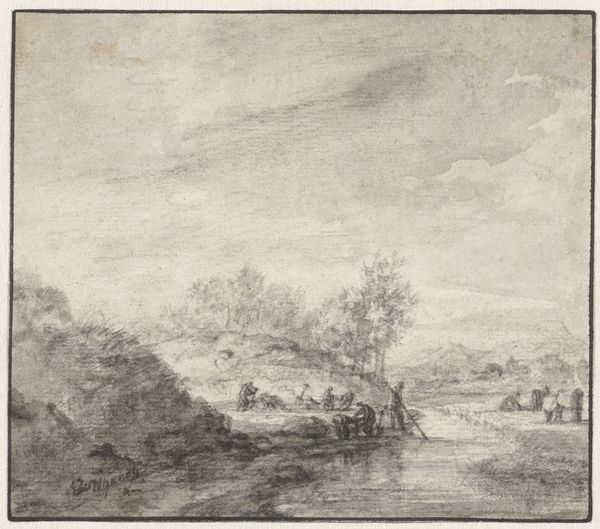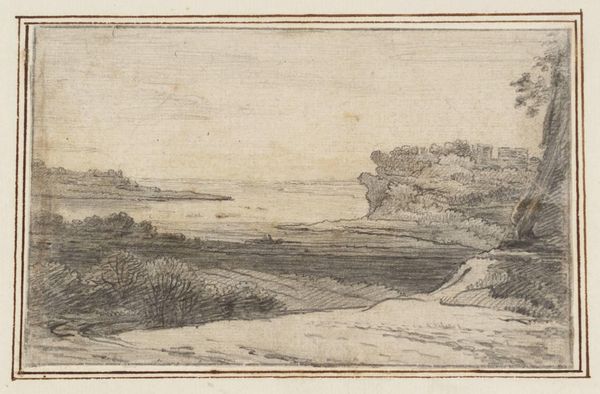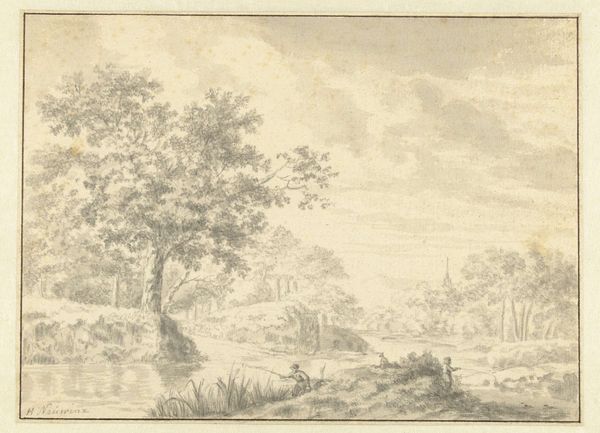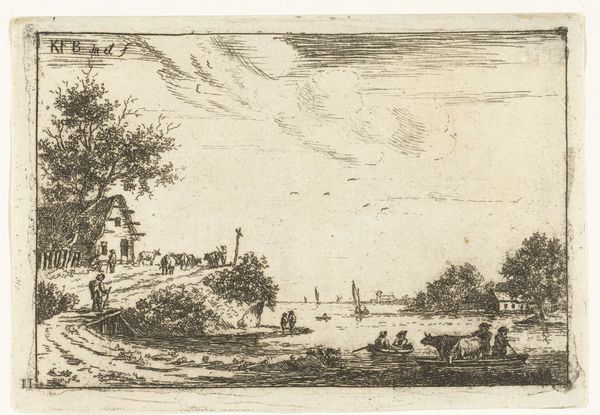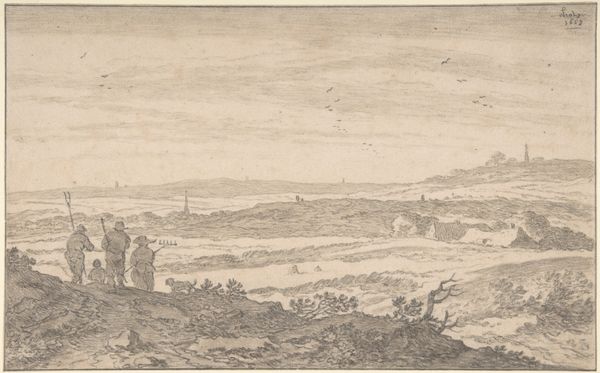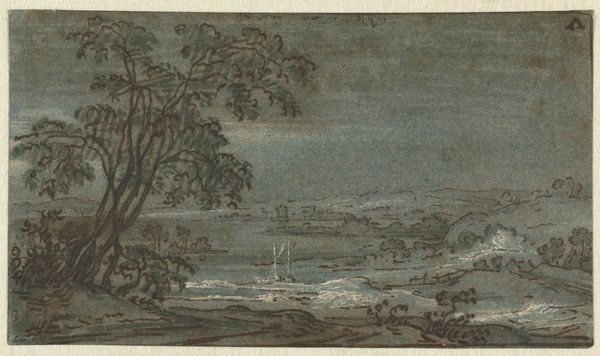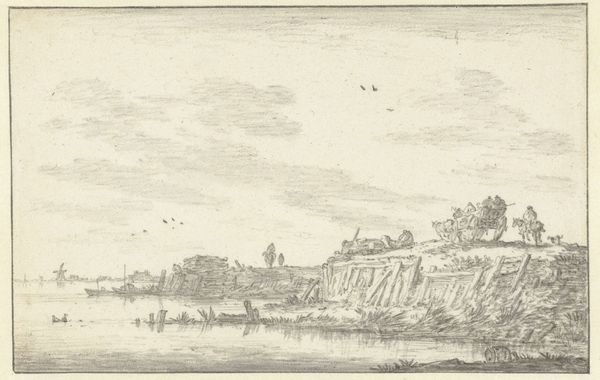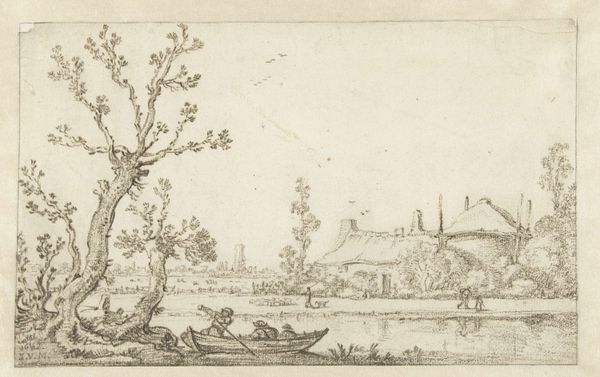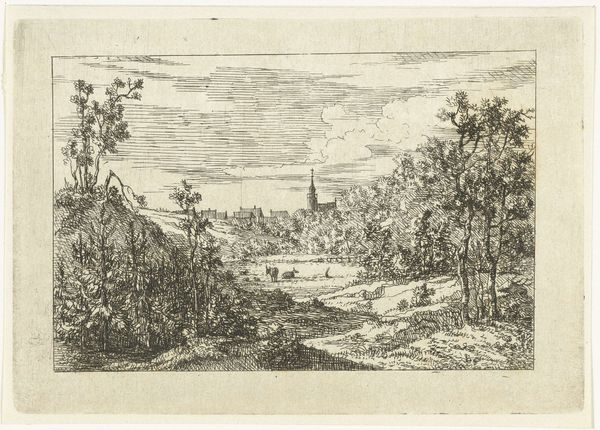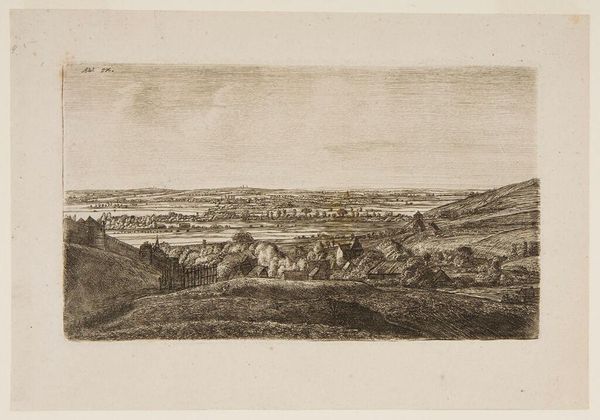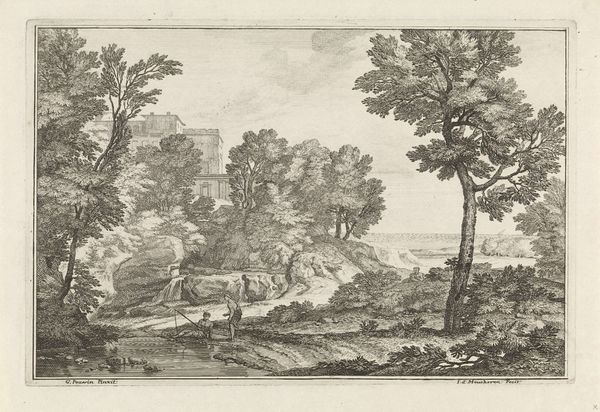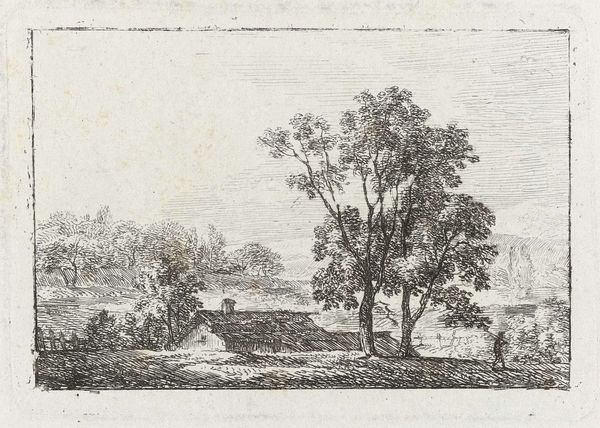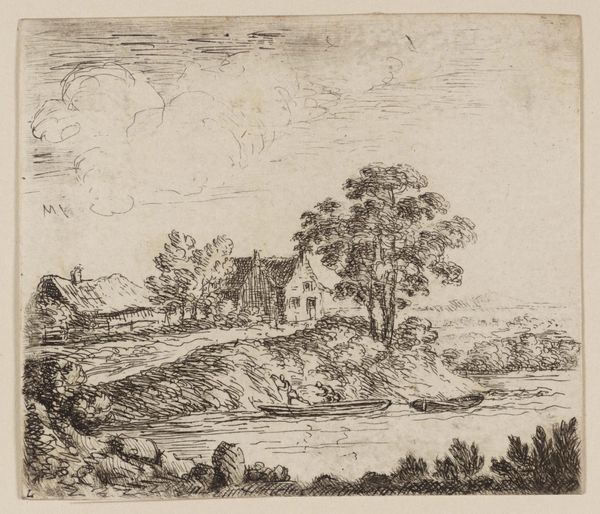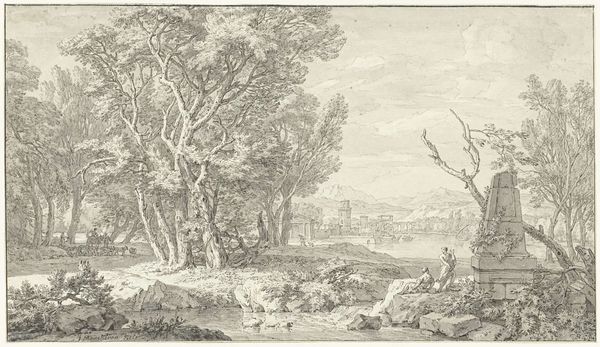
drawing, charcoal
#
drawing
#
dutch-golden-age
#
landscape
#
charcoal drawing
#
oil painting
#
watercolour illustration
#
charcoal
#
watercolor
Dimensions: height 185 mm, width 480 mm
Copyright: Rijks Museum: Open Domain
Editor: We're looking at Aelbert Cuyp's "Landscape with a River," created sometime between 1630 and 1691, rendered in charcoal. It’s housed here at the Rijksmuseum. The drawing seems almost dreamlike, a serene, almost hazy view. What stands out to you about this piece? Curator: It's fascinating to consider the materiality. Charcoal, so elemental, reduced trees to, well, trees again on paper. This resonates strongly within its historical, social and environmental setting: the 17th century Dutch landscape undergoing increasing urbanization, land reclamation, and exploitation. This work participates in romanticizing the landscape. Editor: How does that exploitation tie in, particularly considering charcoal is the medium? Curator: The very making of charcoal connects to deforestation – trees reduced for artistic representation. Also consider the pigments used; were these derived locally? How was this landscape experienced, not just by Cuyp, but the labourers of the time, for whom it was less aesthetic? Are we glorifying rural idyll while erasing a labour history? Editor: So, viewing it as just a peaceful landscape misses the complexities behind its creation and subject matter? Curator: Exactly. Consider the labour embedded: from producing the charcoal to its distribution as a commodity; from making the paper to even, possibly, forced labour on these farms and land depicted here. These ‘landscape’ paintings participated and acted as promotional material for the country. Cuyp's work then isn't just an artwork, but a record and product of larger historical economic and material processes. Editor: That really reframes my understanding. I appreciate the way it all links together: subject, method, even materials themselves are socially connected. Curator: Precisely. It compels us to consider these images more completely, I hope.
Comments
No comments
Be the first to comment and join the conversation on the ultimate creative platform.
